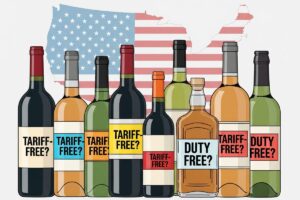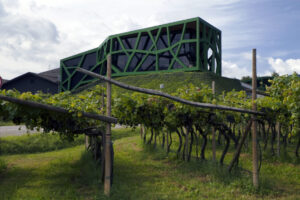Having overcome the resistance and doubts that have emerged in recent weeks, particularly among wine consortiums in Italy and the rest of Europe concerned about a possible loss of wine specificity, the text that reforms the European Union’s system of geographical indications received unanimous approval today from the Agriculture Commission in Strasbourg. Now, the procedure calls for a discussion in the plenary session of the European Parliament before the summer, followed by trilogue meetings (Parliament, Commission, and Council) within the year to definitively approve the new single European text on quality productions. The key points of the reform, are the presence of wine within the reform; the obligation to indicate on the label of PDO and PGI products the name of the producer and, for PGI products, the origin of the main raw material; the clarification of traditional mentions (such as Prosek) which cannot be registered because they evoke PDO or PGI; the role of Euipo, which will be strictly advisory; the confirmation comes from the Directorate General for Agriculture of the Commission as the main interlocutor of the producers; the simplification of the rules for registering and modifying production specifications.
“The European Parliament continues to develop a system without precedent in the world, capable of generating value without requiring any public funds to be invested, by strengthening the role of the consortium, for the protection of PDOs and PGIs, and for consumer transparency”, commented Paolo De Castro, spokesman of the European Parliament for the new EU regulation on PDO and PGI products. In the text adopted, claims De Castro, “we have introduced the obligation to indicate on the label of any PDO and PGI product the name of the producer and, for PGI products, the origin of the main raw material. Not only that, but at the urging of our quality producers, we have been able to eliminate system flaws that allow our Geographical Indications’ reputations to be unfairly exploited, as in the case of Slovenian and Cypriot balsamic vinegar, or even Croatian Prosek. In particular - explains the Pd MEP - it was clarified how traditional terms such as Prosek cannot be registered, as they are identical or evocative of PDO or PGI names”.
PDO and PGI products “will also benefit from ex-officio protection online. In the event that they are used as ingredients, however, written authorization from the respective protection consortium will be required”, continues De Castro, “for which benefit we also propose to simplify the rules for registering and amending the specifications of production”. The European Parliament has also taken a position on one of the most discussed points of the regulation, namely the role of the European Patent Office, the Euipo: “With the text adopted today, we will begin negotiations with the Ministers even before the In the summer – underlines De Castro - we will clarify that the EUIPO will have to play a purely consultative and technical role, while the main interlocutor of the producers will remain the EU Commission’s Directorate General for Agriculture, thereby strengthening the link between European quality brands and rural development”.
“On a European scale, the PDO Economy is worth nearly 80 billion euros. It is no longer just a matter of some Member State’s culture, but of a true European economic, social, and political heritage. With this regulation - concludes De Castro - we will create a true single European text on quality products, strengthening the protection, promotion, and sustainability of our Geographical Indications, which are recognized around the world as a synonym for quality and excellence, thanks to the passion and expertise of our farmers and producers”.
Full satisfaction also came from the Unione Italiana Vini (Uiv), which recently gave the green light to vote on a reform deemed “an opportunity for the wine sector, especially in light of the latest amendments that have helped to clarify some points, such as the sustainability commitments entrusted to the CMO regulation, the presence of wine within the reform, and the role of the Euipo agency, whose functions are now primarily linked to register control”. Among the key points of the reform, recalls Uiv, “the presence of wine within the reform stands out, the definition of IGP wines, the protection of geographical names against possible evocations (such as Prosek) and the new voluntary provisions on the sustainability of wine. All the amendments, strongly requested and shared by Uiv, have today found a positive outcome in ComAgri, and this is reason to applaud a European institution that has well understood the importance of the new EU regulation on PDO and PGI products. The danger of keeping wine disconnected from the system of quality product protection has been avoided, according to Uiv, and this is the most significant victory, but not the only one: the reform will make it possible to make significant progress in terms of protection of designations at an international level, the clarification of the production rules on Igt wines and the simplification of the procedures relating to the specifications”.
Federvini also praises “the excellent work of the Italian MEPs, led by spokesman Paolo De Castro, on the reform of the European Union’s Geographical Indications system”. The approved amendments - says the president of Federvini Micaela Pallini - represent a unique opportunity to achieve a general reorganization of the legislation, filling the gaps that some recent events had highlighted, as evidenced by the Prošek case and the attacks on balsamic vinegar of Modena by Slovenia and Cyprus. We thank the European Parliament for its attention to the sectors represented by Federvini, particularly for its desire to reaffirm the centrality of the wine sector within the new single regulation on quality products, as well as for its willingness to safeguard some peculiarities that deeply characterize the Italian wine sector, such as the definition of IGP wine”, Pallini concluded.
For Origin Italia, we are facing a proposal “which relaunches the political vision of Geographical Indications as one of the pillars of agri-food development in the European Union and which promotes the affirmation of a shared and strong model among the various member countries. An important strengthening of the role of the protection consortiums, an increase in the protection of Geographical Indications, but also a simplification of procedures and a concrete step towards the sustainability (not only environmental) of the Geographical Indications supply chains. The approved text also confirms and strengthens the European Commission’s central role in developing the agri-food economy, limiting the EUIPO to a purely consultative and technical role. These are the elements of the reform that convinced Origin Italia, which, since the beginning of the process, had supported, involving all the protection consortiums, the great opportunity deriving from the new legislation and the need to recognize the importance of the consortiums for the continuation of the success of Geographical Indications. The Origin Italia’s commitment was thus decisive in modifying the European Commission’s proposal, managing to bring out the needs of the sector as well as the potential dangers that would have arisen from the adoption of some regulatory provisions thanks to the relational network in Brussels”.
Copyright © 2000/2025
Contatti: info@winenews.it
Seguici anche su Twitter: @WineNewsIt
Seguici anche su Facebook: @winenewsit
Questo articolo è tratto dall'archivio di WineNews - Tutti i diritti riservati - Copyright © 2000/2025








































































































































































































